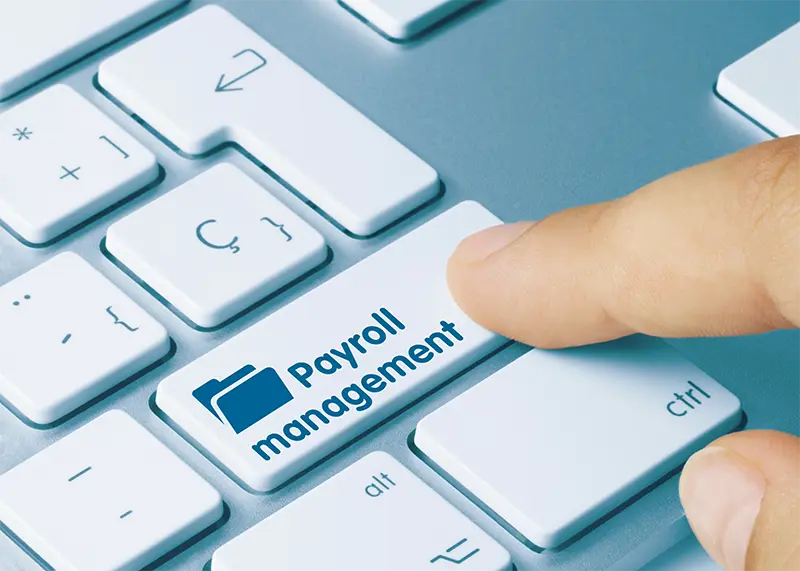Effective Payroll Management: Best Practices to Ensure Compliance and Efficiency

Effective Payroll Management: Best Practices to Ensure Compliance and Efficiency

Payroll management is a critical aspect of running a business, yet it’s one of the most complex and error-prone processes. From calculating salaries and deducting taxes to adhering to labour laws, payroll involves multiple steps that must be executed with precision. Poor payroll management can lead to costly errors, compliance issues, dissatisfied employees and possibly tarnish an employer’s reputation too .
Let’s have a look at the importance of efficient payroll management, common pitfalls to avoid and best practices that can help your business streamline processes and ensure compliance.
FACT: Automated payroll systems can reduce processing times by 50% and lower compliance risks by 30%.
Why Efficient Payroll Management Matters
Managing payroll is not just about paying your employees—it’s about doing so accurately, on time and in compliance with labour and tax regulations.
- Employee Satisfaction: Timely and accurate payroll processing boosts employee morale and trust.
- Regulatory Compliance: Non-compliance with wage regulations and tax laws can lead to hefty fines and reputational damage.
- Cost Savings: Avoiding errors and penalties reduces unnecessary expenses.
Best Practices for Payroll Management
To ensure accuracy, efficiency and compliance, businesses should adopt these payroll management best practices:
- Leverage Automation Tools
Gone are the days of manual calculations and spreadsheets. Automation technology can revolutionize how businesses handle payroll:
- Software Solutions: Tools like QuickBooks, Payroll Panda, or Talenox just to name a few can streamline payroll tasks, from tax calculations to direct deposits.
- Benefits: Automated systems reduce errors, save time, and ensure calculations comply with the latest tax regulations.
- Scalability: These tools can grow with your business, adapting to additional employees, benefits and tax requirements.
- Conduct Regular Compliance Checks
Staying compliant with labour and tax laws is critical to avoid penalties and protect your business’s reputation:
- Audit Payroll Processes: Schedule periodic reviews of payroll records, ensuring they align with labour laws such as minimum wage requirements and tax obligations.
- Monitor Changes in Regulations: Labor and tax laws frequently change. Assign someone to stay updated on legislative developments to ensure your payroll practices remain compliant.
- Seek Professional Guidance: Consider hiring payroll specialists or consultants to assist with compliance and auditing.
- Double-Check Payroll Calculations
Even with automation, it’s important to review calculations to avoid costly mistakes:
- Cross-Verify Data: Regularly verify employee hours, tax rates and deductions before finalizing payroll.
- Error Resolution Systems: Establish a protocol for identifying and rectifying errors promptly to minimize their impact on employees or tax filings.
- Employee Communication: Encourage employees to report discrepancies immediately to resolve issues quickly.
Tips for Staying Compliant
Payroll compliance involves more than just paying employees accurately—it also means adhering to all relevant laws and reporting obligations. Here are some tips to help you stay on top of compliance:
- Keep Records Updated:
- Maintain accurate and up-to-date employee records, including tax forms (e.g., Form EA in Malaysia) and bank details.
- Track benefits, bonuses and overtime accurately to ensure proper reporting.
- File Taxes on Time:
- Submit payroll taxes to the appropriate authorities before deadlines to avoid penalties.
- Leverage payroll software to automate tax filing and ensure compliance with statutory requirements.
- Adhere to Wage Regulations:
- Ensure you meet minimum wage requirements, overtime pay and statutory contributions such as EPF (Employees Provident Fund) and SOCSO in Malaysia.
- Stay informed about regional differences in wage laws if your business operates in multiple states or countries.
- Engage Professional Services:
- Consider outsourcing payroll management to a trusted provider if your in-house team lacks expertise. This reduces errors and ensures compliance with complex regulations.
The Financial Health of Your Business Starts with Payroll
Payroll management may seem like a behind-the-scenes task, but it plays a pivotal role in your company’s overall financial health. Efficient payroll systems save time, reduce costly errors and protect your business from compliance risks.
By leveraging automation tools, conducting regular audits, and staying informed about labour laws, businesses can streamline payroll processes and focus on their core operations. Whether you’re a small business or a growing enterprise, adopting these best practices ensures your employees are paid accurately and on time while safeguarding your business from regulatory pitfalls.
Ready to streamline your payroll management? Contact us today for expert advice and tailored solutions to optimize your payroll processes and ensure compliance!

